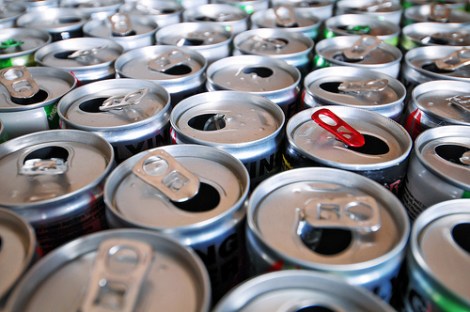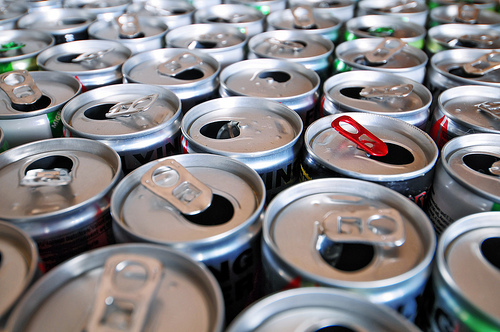
Tambako the JaguarSo many energy drinks.
You don’t have to restrict your breakfast caffeine intake to your morning cup of joe — there’s instant oatmeal with “as much caffeine as a cup of coffee.” And “wired” energy waffles — you could eat 1.7 waffles instead of drinking a grande cup of Starbucks. If you’re feeling really tired, you could spike it with caffeinated maple syrup. Nor is caffeine just for breakfast; you can also get it in mints, lip balm, and soap.
The FDA is worried about this. Not so much about you, as you are a grown-up, but about the 10-year-old kid who thinks it’s AWESOME to have caffeinated waffles. It’s like ordering dehydrated soda for breakfast, and it will inevitably lead to a nation of Cornholios. And so, as the Atlantic reports, the FDA “will investigate the safety of caffeine in food products, particularly its effects on children and adolescents.” Which means it could begin regulating how much caffeine can be added to our food and drinks. (But it doesn’t say anything about cosmetics or soap. Go nuts with those.)
This wouldn’t be the first time the agency tried to exorcise this particular demon from America’s children, either. The Atlantic writes that “the only time the FDA explicitly approved adding caffeine to anything was for use in colas in the 1950s.” But in its early days, the agency tried like hell to ban caffeine as an additive. Back then, the agency was particularly worried about the effects of caffeine on kids, too. FDA agents even seized a shipment of Coca-Cola syrup and put the product on trial as an adulterated food — marred by the dangerous addition of caffeine.
But that didn’t work — the agency ended up settling with Coca-Cola, and caffeine remained in soda. Maybe the agency will have better luck battling caffeinated waffles than caffeinated drinks.


